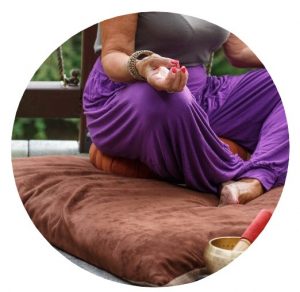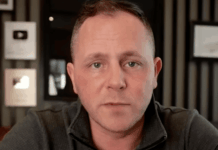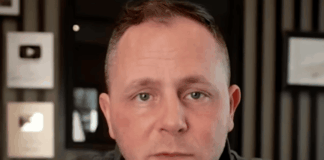
Meditating makes your brain quicker, say scientists (plus how to meditate)
Article by Positive News Magazine
A study that examined the effects of meditation on the brain has confirmed what many who practice it have long suspected
Buddhist monks have been certain of it for centuries, while late adopters in the west have recently come around to the idea. Now US researchers have added scientific weight to the notion that daily meditation can make your brain quicker and improve your ability to concentrate.
Researchers at Binghamton University, New York, used brain scans to see how practicing meditation for 10 minutes a day changed the cognitive behavior of 10 students.
Comparing scans from before and after the eight-week trial revealed that meditation led to faster switching between the brain’s two general states of consciousness: the ‘default mode network’, which is active when the brain is awake but not focused, such as during daydreaming; and the ‘dorsal attention network’, when the brain engages for attention-demanding tasks.
The results of the study, published in the journal Nature, demonstrated that after the meditation course, participants had better brain connections between — and within — the two networks.
“The findings indicate the potential effects of meditation on enhancing the brain capability of fast switching between mind wandering and focused attention and maintaining attention once in attentive states,” the study concluded.
The research came about following a chance conversation between two academics at the university: lecturer George Weinschenk, who is a proponent of meditation; and assistant professor Weiying Dai, who was skeptical about the benefits of meditation. Both from the university’s department of computer science.

Meditating for just 10 minutes a day can improve concentration and make the brain quicker. Image: Hristina Satalova
Having used MRI scans to track Alzheimer’s disease in people, Dai suggested using the scans to observe changes in the brains of people who took up regular meditation. Weinschenk recruited 10 students, taught them how to meditate, and told them to practice for ten to 15 minutes per day, five times a week.
“The findings indicate the potential effects of meditation on enhancing brain capability”
With such a small number of people taking part in the trial, more research is needed. Nevertheless, the results have since persuaded Dai about the virtues of meditation. “I’m pretty convinced about the scientific basis of meditation after doing this study,” she said.
So much so, Dai is set to launch a new line of research to see whether regular meditation could help people with Alzheimer’s disease and autism. The two conditions have been linked to impairments in the dorsal attention network.
How to meditate
 1) Find somewhere comfortable to sit
1) Find somewhere comfortable to sitSit in a chair with your feet flat on the floor, in a place where you won’t be disturbed. You could also choose to sit cross-legged on the floor, kneel, or even lie down — all are fine, as long as you can stay in the position comfortably for 10 minutes. You might wish to use a timer so that you know when to finish.
Image: Susanna Marsiglia
2) Focus on your breathing
 Close your eyes and bring your attention to your body, taking a moment to notice any physical sensations and emotions. Now place your attention on your breath, following it in and out. You might notice your breath at your nostrils, or the rising and falling sensation in your belly, for example. If your mind wanders, as it inevitably will, gently bring your attention back to your breath. Avoid judging yourself when doing this; once you realize you are caught in thinking, simply let the thoughts go and return your attention back to your breath each time.
Close your eyes and bring your attention to your body, taking a moment to notice any physical sensations and emotions. Now place your attention on your breath, following it in and out. You might notice your breath at your nostrils, or the rising and falling sensation in your belly, for example. If your mind wanders, as it inevitably will, gently bring your attention back to your breath. Avoid judging yourself when doing this; once you realize you are caught in thinking, simply let the thoughts go and return your attention back to your breath each time.
Image: Everyday Matters

3) Begin the rest of your day
When 10 minutes have passed, gently open your eyes. Pause for a moment to notice your surroundings, including any sounds or smells. Notice how you feel. Then continue with your day.
For more meditation tips, visit mindful.org
Image: Omid Armin
Main image: Sasin Tipchai
This story comes courtesy of Positve.News, a great source for uplifting, positive articles.
Disclaimer: We at Prepare for Change (PFC) bring you information that is not offered by the mainstream news, and therefore may seem controversial. The opinions, views, statements, and/or information we present are not necessarily promoted, endorsed, espoused, or agreed to by Prepare for Change, its leadership Council, members, those who work with PFC, or those who read its content. However, they are hopefully provocative. Please use discernment! Use logical thinking, your own intuition and your own connection with Source, Spirit and Natural Laws to help you determine what is true and what is not. By sharing information and seeding dialogue, it is our goal to raise consciousness and awareness of higher truths to free us from enslavement of the matrix in this material realm.
 EN
EN FR
FR


























